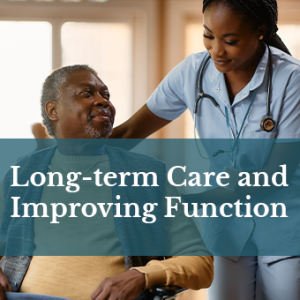Presenter(s):
Naomi Hlongwane, Stellenbosh University, South Africa
Abstract
Background:With the growing aging population in South Africa, the demand for long-term care (LTC) facilities continues to rise. However, ensuring that these facilities not only provide care but also enhance the well-being and autonomy of older adults remains a critical challenge. This study employs institutional ethnography to investigate the quality of life of older adults in South African LTC facilities, shedding light on the ways institutional structures shape care delivery and resident experiences.
Methods:The study draws on in-depth interviews and observations from 20 older adult residents and 10 staff members across five purposively selected LTC facilities in Gauteng, South Africa. Additionally, an analysis of institutional texts, including legislative frameworks and operational policies, was conducted to examine the alignment between regulatory requirements and everyday care practices.
Findings: The findings reveal three key analytic threads: (a) Healthcare Access and Physical Well-Being, (b) Institutional Constraints on Meaningful Engagement, and (c) Efficiency Overriding Privacy and Autonomy. A critical gap exists between legislative policies and their implementation, with older adults expressing a desire for greater autonomy and meaningful participation in decision-making regarding their care. The study highlights how regulatory frameworks and institutional ideologies structure the roles of care workers, often restricting their ability to tailor care to individual needs. While the Older Persons Act 13 of 2006 emphasizes dignity and protection, its enforcement mechanisms tend to prioritize administrative compliance over personalized, resident-centered care.
Conclusion: This study underscores the urgent need for innovative service delivery models in LTC that move beyond rigid institutional structures and instead prioritize individualized care, resident agency, and flexible support systems. The findings call for reforms that empower both older adults and care workers, enabling a shift toward care models that balance regulatory accountability with person-centered approaches. By integrating resident preferences and promoting autonomy, LTC facilities can foster environments that enhance the overall well-being and dignity of older adults in South Africa.
Bio(s):
Naomi Hlongwane is a social scientist specializing in sociobehavioral research, health systems, and community engagement. She currently leads sociobehavioral research and community engagement at the Setshaba Research Centre, overseeing community engagement initiatives, stakeholder participation, and social science research. Her work focuses on understanding the sociobehavioral determinants of health, particularly in relation to healthcare access, disease prevention, and Quality of Life. An occupational therapist by profession, Naomi has experience working in clinical and institutional settings, including LTC facilities. She holds a Master’s degree in Public Health and is currently a PhD candidate at Stellenbosch University’s Division of Disability and Rehabilitation Studies. She serves as the Principal Investigator (PI) for multiple studies, exploring the uptake of biomedical vaccines within communities and the quality of life of disease-affected communities. Passionate about evidence-based policy reform, she is dedicated to advancing the dignity, rights, and well-being of marginalized populations.

